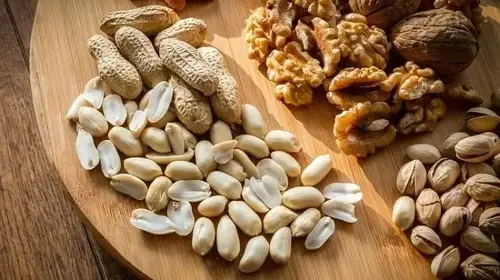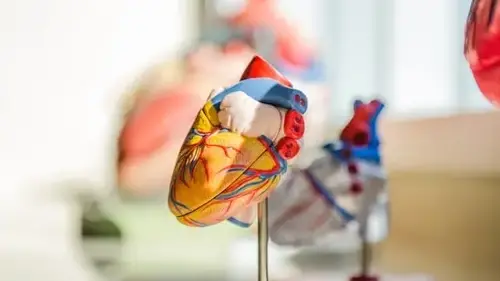
For decades, cholesterol has been at the center of discussions about heart health, often shrouded in confusion and conflicting advice. Misconceptions abound—from the idea that all cholesterol is harmful to the belief that a single pill can magically fix heart issues.
In an interview with HT Lifestyle, Dr Abhijit Borse, Interventional Cardiologist at Asian Heart Institute in Mumbai, unravelled some of the most prevalent myths about cholesterol and heart health, shedding light on what the latest science really tells us.
Myth 1: All cholesterol is bad
Fact: Cholesterol is a waxy substance found in every cell of the body and is vital for producing hormones, vitamin D and bile acids that help digest fat. It travels through the bloodstream on lipoproteins, primarily low-density lipoprotein (LDL) and high-density lipoprotein (HDL).
- LDL (Low-Density Lipoprotein): Often labeled as “bad” cholesterol, LDL can contribute to plaque buildup in the arteries if levels become too high.
- HDL (High-Density Lipoprotein): Known as “good” cholesterol, HDL helps remove excess cholesterol from the bloodstream, transporting it to the liver for excretion.

Understanding that cholesterol has both beneficial and potentially harmful forms is essential. Rather than demonising all cholesterol, the focus should be on maintaining a healthy balance.
Myth 2: Dietary cholesterol directly causes high blood cholesterol
Fact: For many years, foods high in cholesterol—like eggs, shrimp, and red meat—were blamed for raising blood cholesterol levels. However, research over the past few decades has shown that dietary cholesterol impacts blood cholesterol to a much lesser extent than once believed.
- Saturated and Trans Fats: These fats, rather than dietary cholesterol itself, play a more significant role in elevating LDL levels. Foods high in saturated fat (such as fatty cuts of meat and full-fat dairy) and trans fats (found in some processed foods) are more problematic.
- Individual Response: Genetics and overall diet quality also determine how dietary cholesterol affects blood levels. For most people, moderate consumption of cholesterol-rich foods does not lead to significant changes in blood cholesterol.
Myth 3: All fats are unhealthy
Fact: Not all fats contribute to heart disease. In fact, fats are essential for the absorption of vitamins and provide energy. The key is distinguishing between different types of fats:
- Unsaturated Fats: Found in olive oil, avocados, nuts, and fish, these fats can improve blood cholesterol levels and reduce inflammation.
- Saturated Fats: While some saturated fat can be part of a balanced diet, excessive consumption has been linked to higher LDL levels.
- Trans Fats: These are harmful fats often found in processed and fried foods and should be minimized as much as possible.
Myth 4: Cholesterol medications are harmful and should be avoided
Fact: Cholesterol-lowering medications, particularly statins, are among the most studied and effective tools for reducing the risk of heart disease. While all medications can have side effects, the benefits of statins in reducing heart attacks and strokes in high-risk individuals are well documented.
- Evidence-Based Use: For people with high LDL levels or existing heart disease, statins and other lipid-lowering therapies can be lifesaving.
- Individualised Treatment: Not everyone needs medication. Decisions should be based on a comprehensive risk assessment that includes family history, lifestyle factors, and other health conditions.
Myth 5: You only need to worry about cholesterol if you have heart disease
Fact: High cholesterol often develops without symptoms and can contribute to heart disease silently over many years. Regular screening is crucial, even if you feel healthy, as early detection and lifestyle changes can prevent complications down the line.
- Screening Recommendations: Most health guidelines suggest that adults get their cholesterol checked every 4-6 years, or more frequently if they have risk factors such as diabetes, high blood pressure, or a family history of heart disease.
- Preventative Approach: By knowing your numbers, you and your healthcare provider can develop a personalized plan that may include dietary adjustments, exercise and if necessary, medications.
The conversation around cholesterol and heart health is evolving as science uncovers more nuanced insights into how our bodies work. Dr Abhijit Borse said, “Debunking these common myths is not only about setting the record straight—it’s about empowering individuals to make informed decisions about their health. A balanced diet, regular exercise and personalised medical advice remain the cornerstones of a healthy heart.”

He concluded, “As research continues to advance, staying informed and consulting with healthcare professionals will ensure that you’re taking the best steps for your cardiovascular well-being. By demystifying cholesterol, we can shift the focus from fear to understanding and proactive care, ultimately leading to healthier hearts and longer lives.”
Note to readers: This article is for informational purposes only and not a substitute for professional medical advice. Always seek the advice of your doctor with any questions about a medical condition.